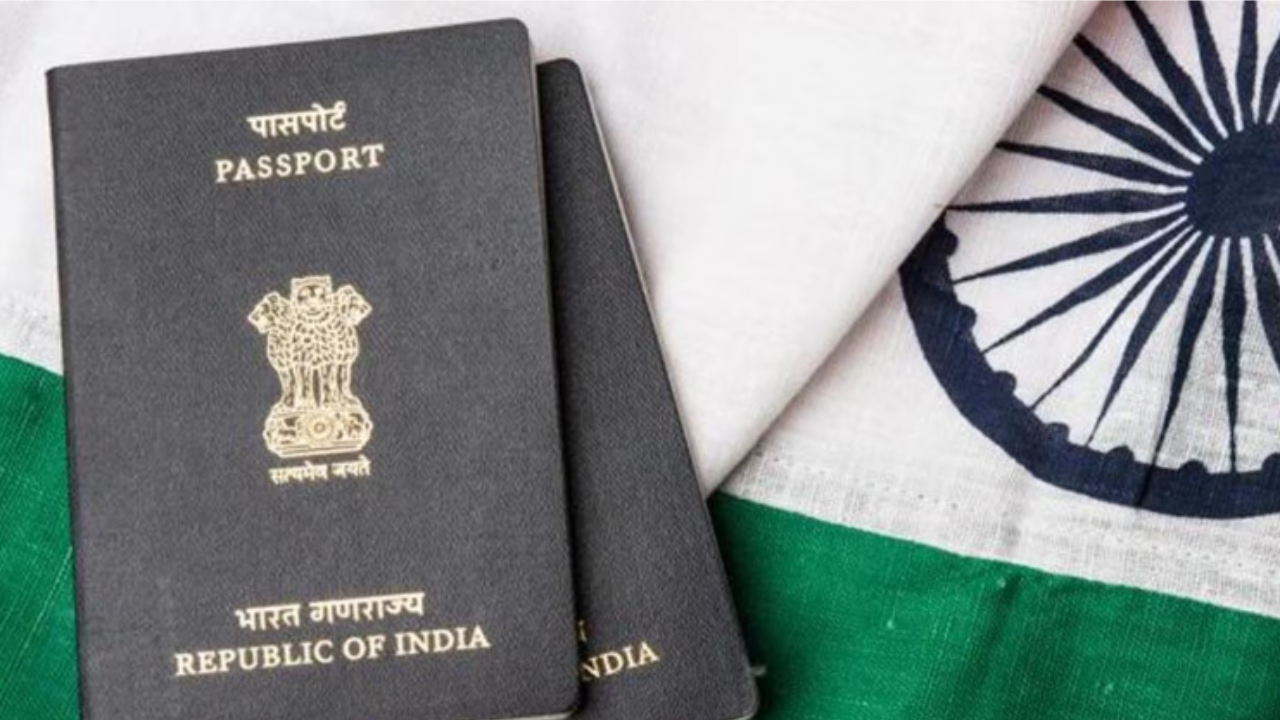More than 87,000 Indians gave up their citizenship till June, says S Jaishankar

More than 87,000 Indians gave up their citizenship till June, says S Jaishankar
External Affairs Minister S Jaishankar recently highlighted a growing trend among Indians of settling abroad, revealing that a substantial number of individuals have renounced their Indian citizenship. According to the Minister, a staggering 87,026 Indians chose to relinquish their citizenship as of June this year.
The significant number of Indian citizens renouncing their citizenship signals a noteworthy shift in migration patterns and aspirations among the Indian populace. It reflects a growing inclination towards seeking opportunities and settling in foreign countries, possibly in pursuit of better prospects, improved quality of life, or professional advancements.
The decision to renounce citizenship is a complex one, and individuals may have various reasons for making such a choice. Settling abroad involves a series of considerations, including legal, financial, personal, and emotional factors. While some may be driven by aspirations for a global lifestyle, others might prioritize family reunification or educational opportunities for their children in foreign lands.
The Indian diaspora has a longstanding tradition of contributing to the growth and development of countries worldwide. Many Indians have achieved remarkable success in diverse fields, enriching their host nations with their skills, expertise, and cultural diversity.
The increasing number of Indians renouncing their citizenship also raises discussions about brain drain and its impact on the country’s talent pool. Brain drain refers to the emigration of skilled and educated individuals to other countries, leading to the potential loss of talent from the nation of origin.
At the same time, it is essential to recognize that migration is a multi-faceted phenomenon with benefits and challenges for both sending and receiving countries. While some Indians pursue their dreams and aspirations abroad, others may return with newfound skills and experiences to contribute to India’s progress.

As the world becomes more interconnected, the movement of people across borders is likely to continue shaping global dynamics. Governments and policymakers must carefully consider the implications of these trends and create conducive environments that encourage talent retention and attract skilled individuals back to their homeland.
For individuals seeking to settle abroad, navigating the immigration and citizenship processes can be intricate and time-consuming. It is crucial for aspiring migrants to seek accurate and updated information from official sources and immigration experts to make well-informed decisions.
In a written reply, External Affairs Minister S Jaishankar disclosed that the number of individuals relinquishing their Indian citizenship has been even more substantial. Since 2011, an astonishing figure of over 17.50 lakh people has chosen to give up their Indian citizenship.
This revelation emphasizes the magnitude of the trend of settling abroad and opting for citizenship in foreign countries. The significant number of individuals renouncing their Indian citizenship over the past decade raises questions about the underlying factors driving such a decision.
The reasons behind individuals giving up their Indian citizenship could be manifold. Economic opportunities, career advancements, higher education prospects, or family considerations are some of the factors that might influence such choices. Additionally, some individuals may seek a change in citizenship to access certain privileges, rights, or benefits available in their chosen countries of residence.
The data provided by the Minister underscores the ongoing global mobility and the increasing openness of countries to embrace foreign residents. It also reflects the diverse ambitions and aspirations of the Indian population, who are seeking opportunities beyond national borders.
As India continues to navigate the complex landscape of migration, it is essential for policymakers to assess the impact of such trends on the country’s socio-economic dynamics. Balancing the retention of skilled talent within the nation while acknowledging the individual choices of its citizens is a delicate task.
Additionally, addressing concerns related to brain drain, ensuring a supportive environment for innovation and entrepreneurship, and fostering stronger connections with the Indian diaspora abroad become critical components of India’s engagement with its global citizenry.
Furthermore, it is crucial for individuals considering citizenship changes to have access to reliable information and resources to make well-informed decisions. Government authorities and immigration experts play a vital role in providing accurate guidance and support to those navigating the complexities of international migration.

In response to a query in the Lok Sabha, the External Affairs Minister (EAM) revealed the staggering numbers of Indian citizens who renounced their citizenship in recent years. The data provided by the EAM indicates a significant trend of individuals opting to relinquish their Indian citizenship over the past decade.
According to the EAM’s reply, the number of Indians who renounced their citizenship was as follows:
- 2,25,620 in 2022
- 1,63,370 in 2021
- 85,256 in 2020
- 1,44,017 in 2019
- 1,34,561 in 2018
- 1,33,049 in 2017
- 1,41,603 in 2016
- 1,31,489 in 2015
- 1,29,328 in 2014
- 1,31,405 in 2013
- 1,20,923 in 2012
- 1,22,819 in 2011
These numbers reflect a consistent pattern of individuals opting to give up their Indian citizenship over the years. The reasons behind these decisions could be diverse, including personal, professional, or family-related factors, as well as seeking citizenship in other countries for various opportunities and benefits.
The disclosure of such significant numbers highlights the evolving global mobility and the aspirations of the Indian population to explore opportunities beyond their home country. For policymakers, understanding the motivations behind these decisions and addressing the potential implications on the nation’s human capital and economic landscape become important considerations.
It is important to note that migration is a complex and multi-dimensional phenomenon influenced by various factors. As individuals exercise their right to choose citizenship, government authorities must continue to engage with the Indian diaspora abroad, foster connections, and create an enabling environment to encourage the retention of talent and contributions from non-resident Indians (NRIs).
As India positions itself as a global player, balancing the benefits of global mobility with retaining its skilled workforce and diaspora connections will remain a critical aspect of its engagement with the international community. Moreover, providing accessible and accurate information to individuals considering citizenship changes becomes crucial to ensuring well-informed decisions.
The External Affairs Minister emphasized the notable trend of a large number of Indian nationals venturing into the global workplace. He pointed out that many Indians who are pursuing education abroad have opted to acquire foreign citizenship for reasons of personal convenience.

This observation highlights the changing landscape of international mobility and the aspirations of Indian citizens seeking opportunities beyond their homeland. The increasing number of Indians exploring global job markets signifies a growing interest in seeking better career prospects, professional growth, and diverse experiences on an international stage.
In addition to career opportunities, the Minister also acknowledged that a significant portion of Indian students studying abroad have chosen to acquire foreign citizenship. This decision may be driven by various factors, including ease of travel, access to education, employment opportunities, and potential benefits or privileges offered by the foreign country.
For some students, obtaining foreign citizenship during or after their studies can simplify their stay, work, or travel arrangements in their host country. It may also provide them with a sense of belonging and greater integration into the local community.
While this trend demonstrates the global outlook and ambitions of Indian nationals, it also raises considerations for policymakers in India. Encouraging the retention of skilled talent within the country while maintaining strong connections with the Indian diaspora abroad is a balancing act that requires thoughtful policy frameworks.
Furthermore, nurturing a supportive ecosystem for innovation, entrepreneurship, and skill development in India can play a pivotal role in creating opportunities and retaining talent within the country. At the same time, the Indian government can engage with the diaspora, tapping into their expertise and experiences for mutual benefit and collaboration.
Overall, the increasing number of Indian nationals exploring the global workplace and considering foreign citizenship reflects the changing dynamics of international mobility. As the world becomes more interconnected, India must proactively respond to these trends, ensuring that the nation’s policies and strategies align with the aspirations and choices of its citizens while fostering strong ties with the Indian diaspora worldwide.
S Jaishankar further emphasized the significance of the Indian community abroad, recognizing it as a valuable asset to the nation. He highlighted that the government has implemented a transformational change in its engagement with the Indian diaspora.
According to the Minister, a successful, prosperous, and influential diaspora presents a considerable advantage for India. The government’s approach is to actively leverage the networks and reputation of the diaspora for the nation’s benefit.
The Indian diaspora plays a crucial role in various fields, including business, academia, research, technology, culture, and philanthropy, among others. The expertise and experiences of the diaspora community have the potential to contribute significantly to India’s development and progress.
By fostering stronger ties with the Indian diaspora, the government aims to capitalize on their diverse skills, knowledge, and resources. Engaging with the diaspora networks can facilitate knowledge transfer, investment, trade, and collaboration in various sectors, ultimately contributing to India’s growth and global standing.
Furthermore, the diaspora serves as cultural ambassadors, promoting Indian heritage, traditions, and values on the global stage. Their contributions in strengthening people-to-people connections and building bridges of understanding between India and other nations are invaluable.
India’s diaspora engagement policies focus on creating a conducive environment that encourages the diaspora to remain connected to their roots while actively participating in India’s development journey. Initiatives such as Pravasi Bharatiya Divas and various outreach programs are aimed at fostering a sense of belonging and facilitating a meaningful involvement of the diaspora in nation-building.
In conclusion, External Affairs Minister S Jaishankar highlighted the immense value of the Indian community abroad, portraying it as a crucial asset to India. The government’s proactive approach to engaging with the diaspora underscores the recognition of their potential contributions and the importance of leveraging their networks for national progress. A successful and influential diaspora strengthens India’s global presence and fosters mutually beneficial relationships between India and other countries.




